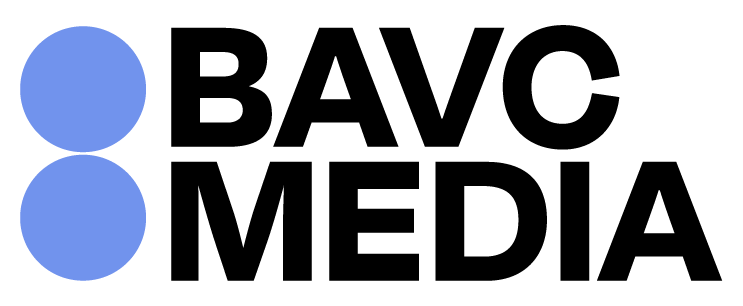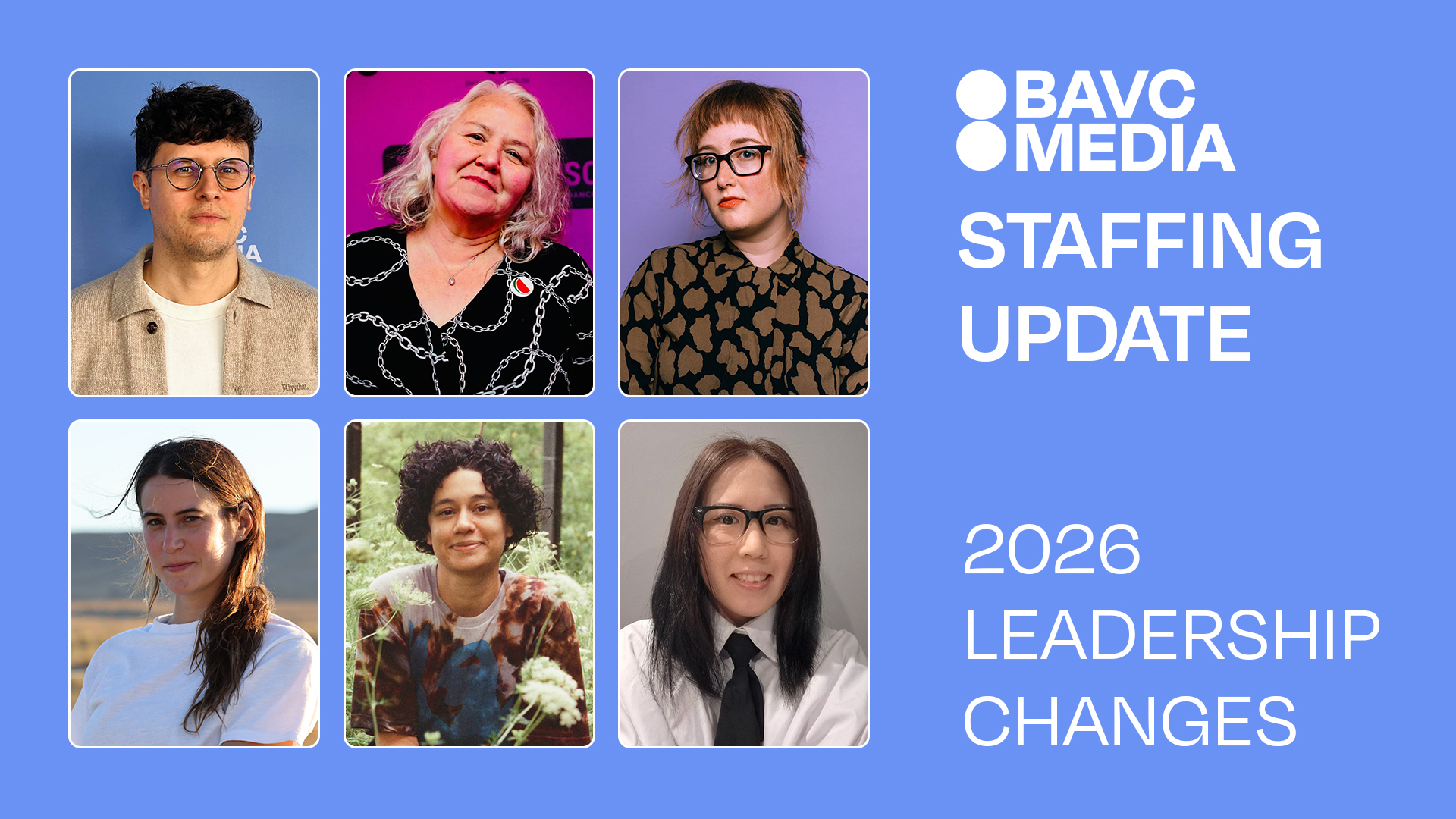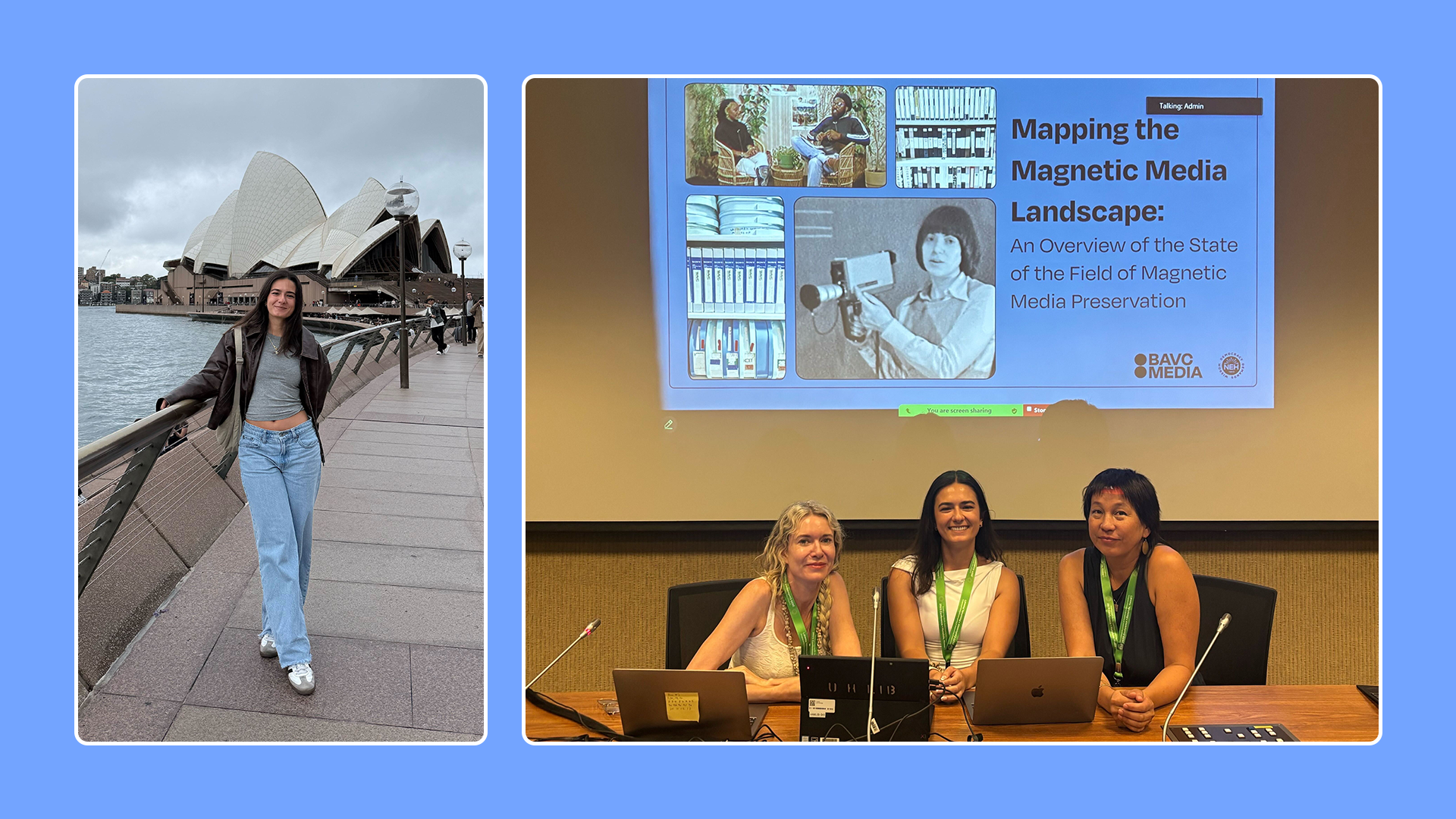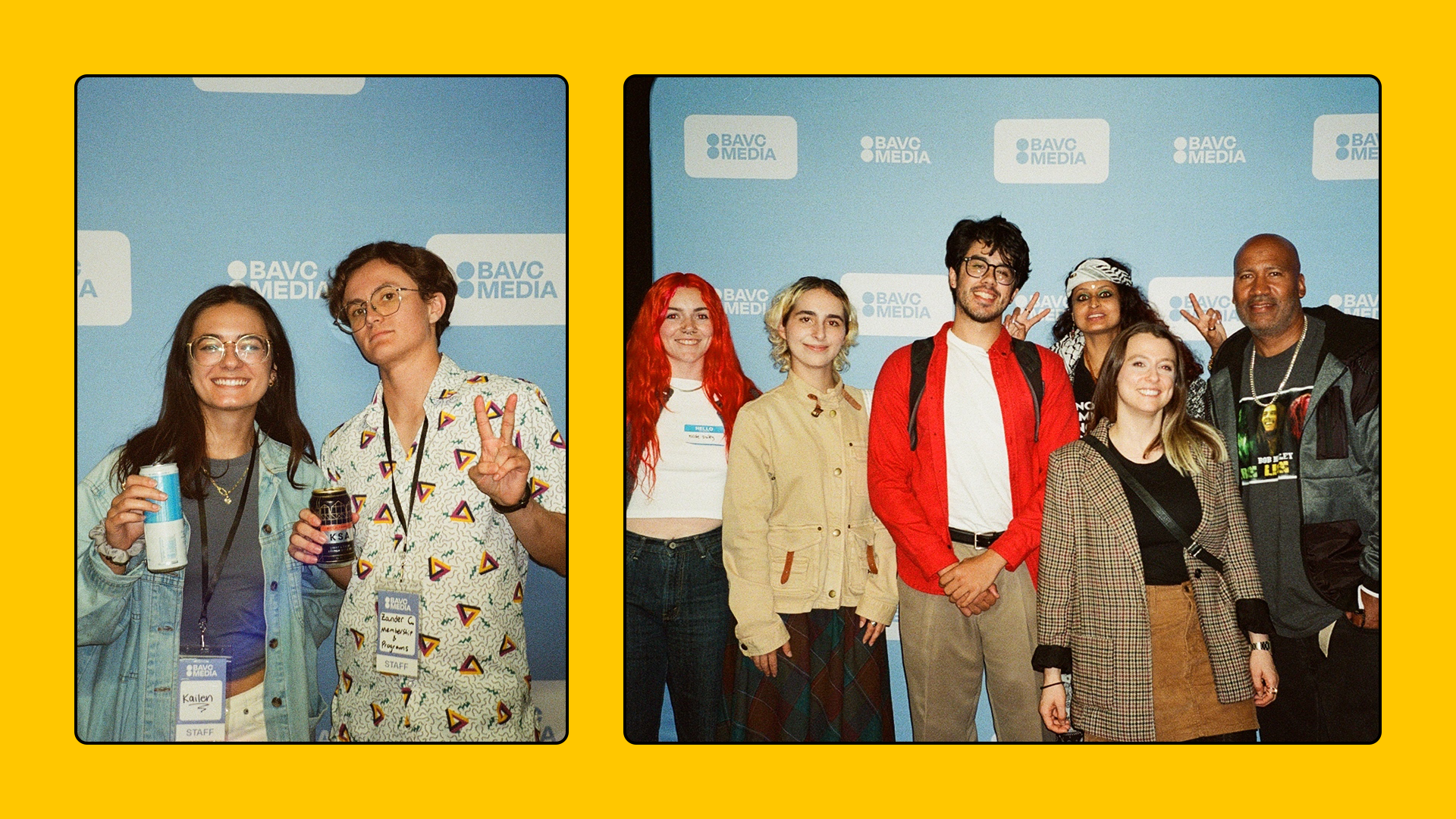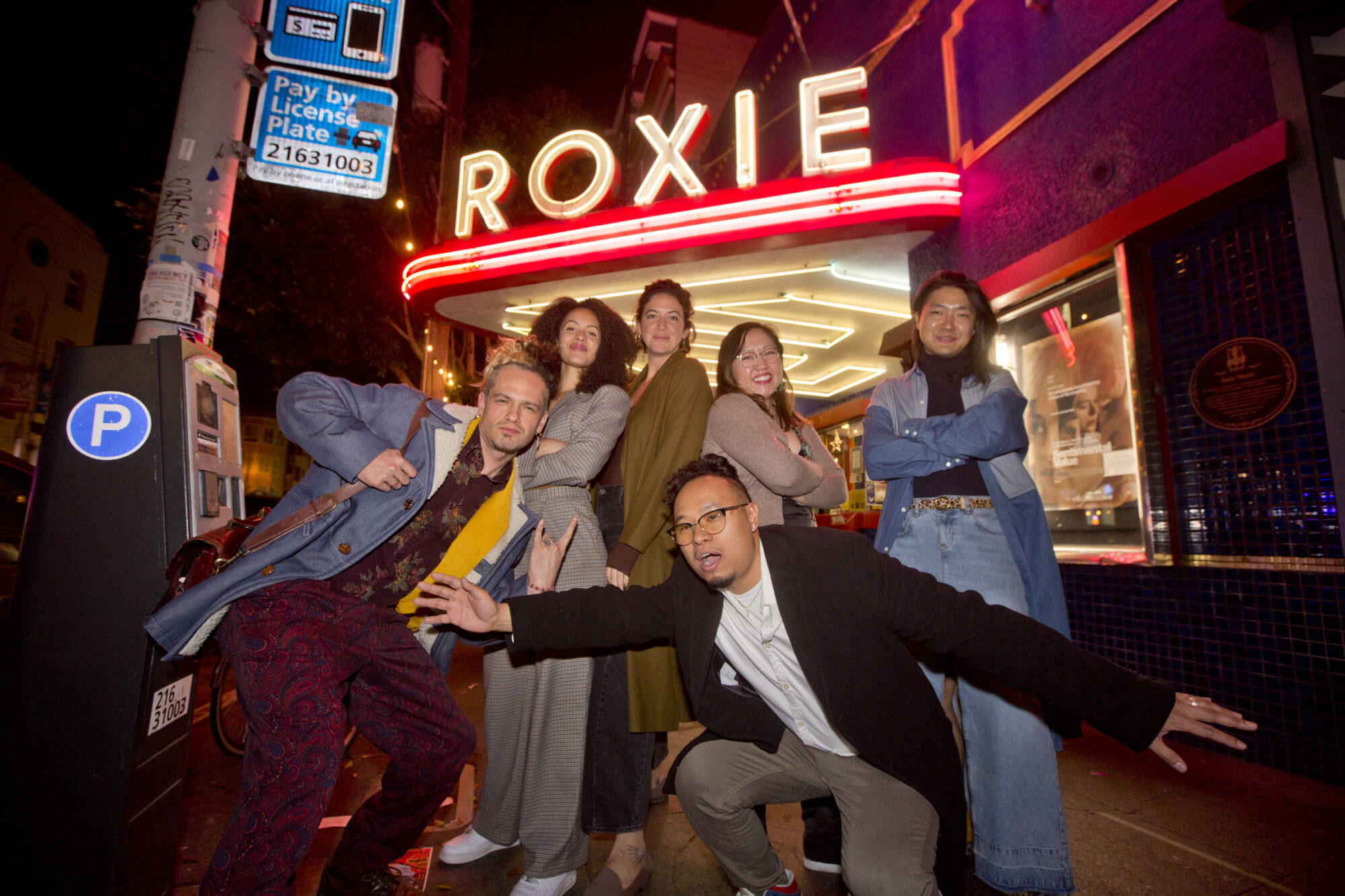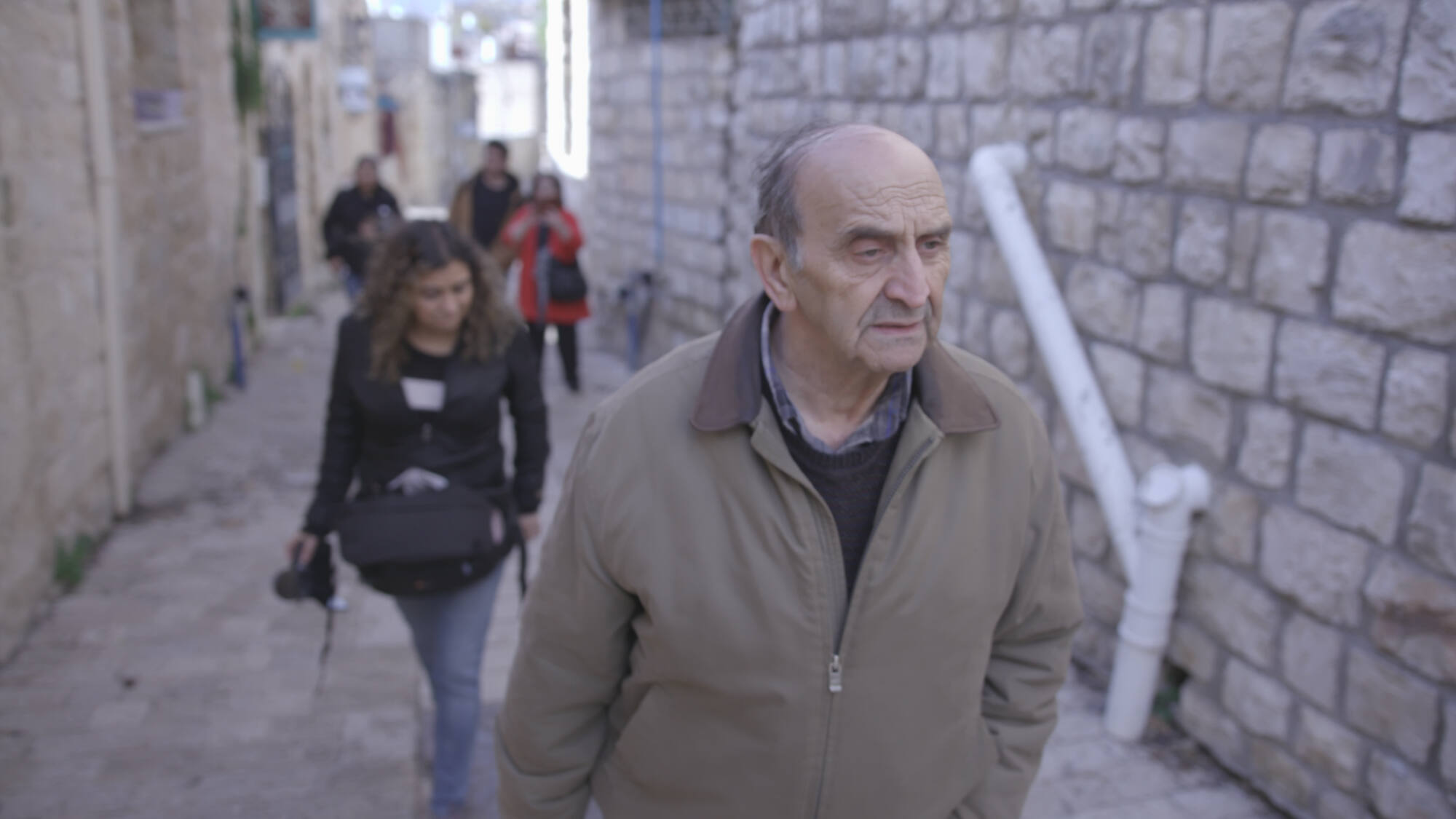PROVISIONS Filmmaking Foundations: Where to Start with Keith Battle
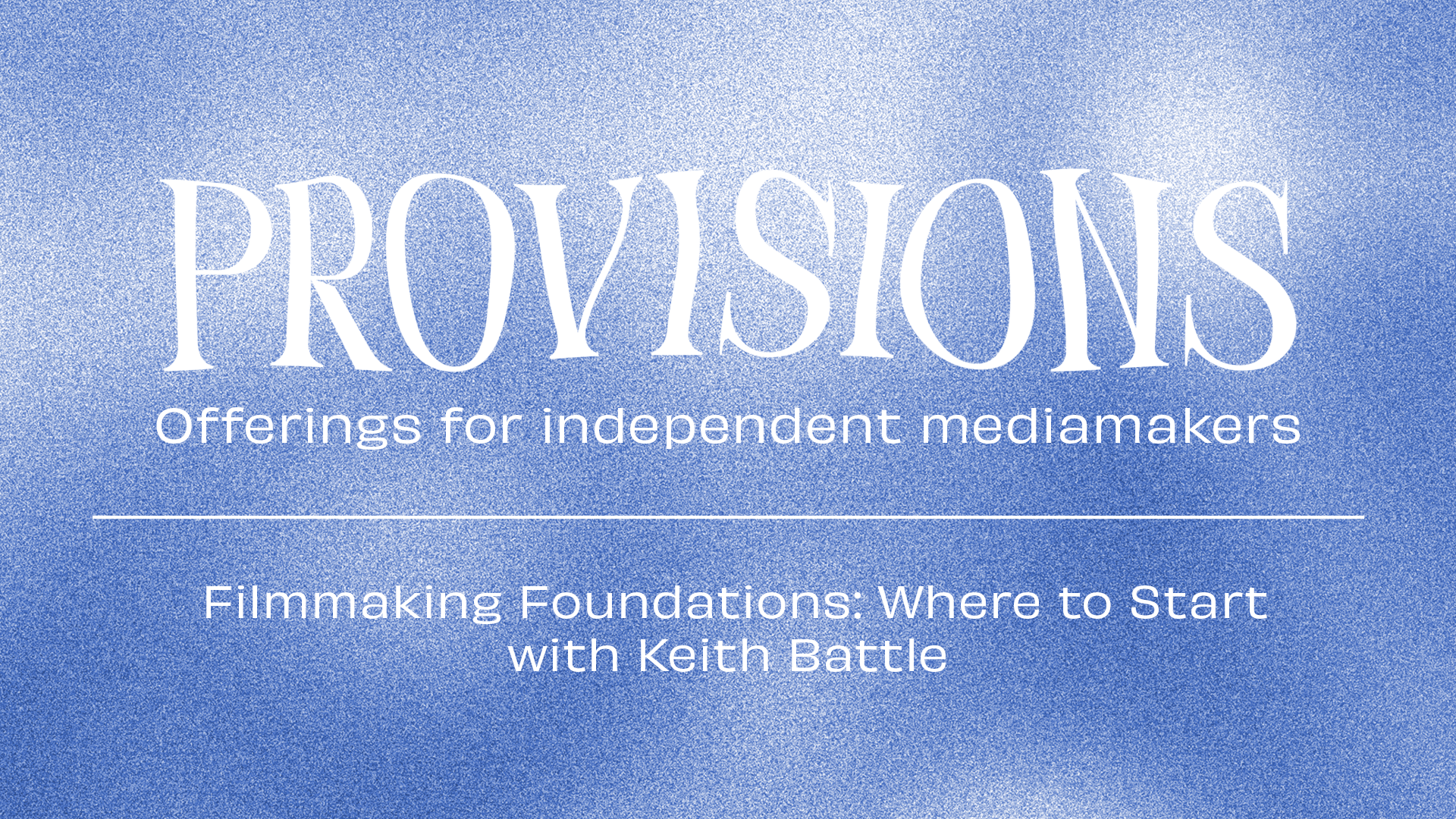
PROVISIONS is a new series from BAVC Media, featuring interviews, advice, and insights into the creative process from our mediamaking community.
Keith Battle is a born storyteller, an educator with over ten years of experience, and BAVC Media’s Director of Advanced Training and Workforce Development. He equips up-and-coming filmmakers with video production skills to get their projects off the ground and tell their stories.
We recently caught up with him about what he wished he knew before making his first film, pre-shoot anxiety, over-planning, and if you actually need to level up your gear.
This conversation has been edited for length and clarity.
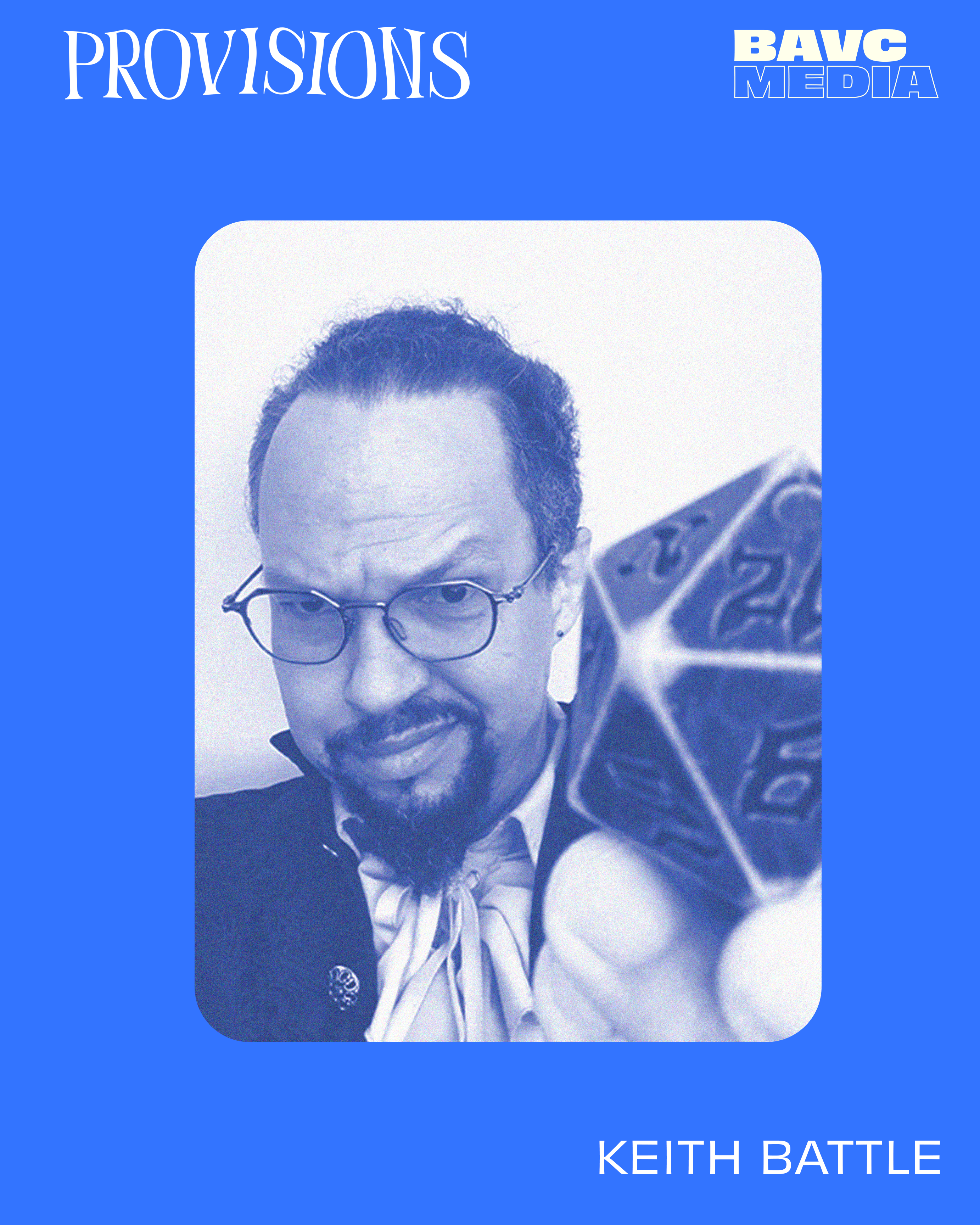 What was your experience like making your first film?
What was your experience like making your first film?
The first film I ever made was with BAVC Media in the Video Production Bootcamp. I took the bootcamp and just fell in love with the process of using that medium to tell stories. Up until that point, I had been telling stories through lyric, verse, and music.
The first time I really picked up a camera and made something was in collaboration with other folks who were training with BAVC under the tutelage of Sade Gryffin, I credit him with giving me my start in the industry. The experience was really, really amazingly fun. I don’t see myself as a people person but in that format, you have to work with a lot of people as a team. I really deeply appreciated that aspect of it, that everybody has their own piece that they’re bringing to the table.
We all worked collaboratively on the production of it then we individually take the raw materials that we’d gathered in the field and assemble them into our own version of the story. Once I saw at the end of the class all the different takes that my fellow students had on the same source material, it was like ‘Oh, crap, this is, this is something really special.’
No matter what you shoot with the camera, there’s always different ways that you can assemble it and tell a completely different story just by getting in touch with what resonates with you about the footage.
Is there anything that you wish you’d known before starting the process of making a film or something you learned along the way?
I’ve learned so much over the 20 years now that I’ve been doing this, I think probably one thing that I would share with an earlier version of myself is to just embrace mistakes. Accept that failure is always an option and it’s part of the process. I tend to skew more towards the perfectionist side of the scale and so when one little tiny thing is wrong, I counted it as an abject failure.
It was only much later in my creative growth that I kind of came to that realization that you’ve got to do a bunch of stuff. You know, exercises that are just going to be garbage and to let that go because you got to shake off the cobwebs then get back into the groove.
I would encourage my younger self, to go back and look at some of those mistakes. There are some things that I that I’ve been really, really unhappy with in the moment of making them. I’m just too emotionally close to it. And then I come back to it years down the line and I’m like ‘This is actually pretty freaking great.’ I can also see how far I’ve progressed since then. There’s this emotional distance from it that comes with time that looking back on it, having that perspective, my instincts evolved. Even if the product isn’t great, or is as good as one might think it could be, my instincts have always been on point. I just needed that reminder. Sometimes the only person that can give you that reminder is your younger self, your previous self.
What are the most common questions you get from your students?
The most common question that I get bar none is what camera should I buy? I both love and hate that question. Because it kind of tracks my own progression. I suffer from GAS, gear acquisition syndrome. I wish I had known at the time what I know now about gear, which is the secret to creativity doesn’t lie in the next greatest camera, the secret lies in pushing what you have to its absolute limits.
I love the question because it gives me the opportunity to have a conversation with people about what kind of video storyteller they want to be. Because there’s not one camera that’s the best for every situation. Thinking about your technical proficiency, and your budget is much more a fruitful investigation than, ‘Oh, this camera can shoot X number of frames per second at you know, 12k resolution.’ I’ve seen some really, really amazing things shot on smartphones as shot and edited on smartphones. And then I’ve seen some garbage shot on some of the nicest cameras that I’ve ever been able to lay my hands on.
With people that really have important stories to tell, I love being able to get into like why they tell stories and what’s going to benefit you most. A camera that is going to give you really, really amazing results on the day, and then you’re never going to pick up ever again or something that’s not going to break your budget.
What equipment would you recommend to a first-time filmmaker? Using what you have seems like the answer, but do you have any advice to make the most of what you do have?
Regardless of what camera you’re shooting, whether it’s your phone or anything, I think bare minimum is to start off with a decent video tripod so you can get smooth pans and tilts. That’s the bare minimum and I would say get a good rugged bag to carry it in.
Depending on what kind of stories you want to tell a decent microphone, whether it’s a shotgun mic, whether it’s a lavalier, or if your budget will allow you to have one of each so that you can capture good quality audio. I’ve seen some really, really beautiful pieces that have just trash audio, and it just ruins the experience. So those two things alone will take you a really long way in terms of just giving yourself more options and better production value for not a whole lot of money.
Also lots and lots of gaff tape, I can’t stress that enough. And a multi-tool, something that’s got a flathead screwdriver on it so you can use it to take your camera on and off the tripod, and maybe has a pair of wire cutters and a blade for cutting boxes open. Anything else beyond that, like you will define that for yourself as you take that very minimal kit and start to push it to its limits.
I think with just those bare bones things, if you’re brand new to the field, these creative constraints and the limit with what you can do is very valuable.
So in my martial arts practice, for example, you know, you’re not on day one going and doing like, all the crazy stuff, you’re just like standing in place throwing, like hundreds and hundreds of kicks, and punches at the air and maybe hitting a hitting pad of some sort. Then you start working into learning forms, which are their own sort of form of creative constraint, right? You’re learning techniques, you’re applying some of those kicks and punches that you learn. But in a kind of structured, very limited way. So you get to a point where you don’t have to think about it, your body just does it. I feel like giving yourself those creative constraints and having to think your way out of those constraints is one of the most valuable skills that people can learn.
So getting into accessibility and using what you have, do you know of any free programs for filmmakers?
So in terms of software there’s always iMovie and Windows Movie Maker, I haven’t dabbled in any of the other freeware editing platforms. For a number of reasons, I really haven’t spent that much time with Windows Movie Maker or, or iMovie if I’m being honest. Because of where I came from, like how I arrived at editing, I was brought up in a world of avid and Final Cut, and later, much later, Premiere Pro.
My recommendation wouldn’t matter. It’s like whatever you can get your hands on, and start cutting because at the end of the day, a cut is a cut. And those free, very stripped-down, platforms like iMovie and Windows Movie Maker are going to provide the same kind of creative constraints, to give you a sharper picture of who you are as a storyteller, and how you’re going to think your way out of that box.
Because the professional-level, editing platforms have all of those bells and whistles that you may be looking for. But if you don’t know what you’re looking for, you wouldn’t know where to look for them once you got the tool. So I think just grinding out some stuff and pushing that software until it metaphorically breaks and no longer serves you. It doesn’t matter which platform you use.
What does preparation before a shoot look like for you?
Absolute existential dread and panic. It’s in my nature to worry, I am working in therapy to get a handle on my anxiety. It doesn’t always show, I can wear a pretty convincing mask. But yeah, it’s just cold sweats, self-doubt, and all of those things. So to combat that, I tend to over-plan the night before.
Aside from the emotional portion of it, I’m running through my spreadsheet, my shot list, I’m going through all of my notes, I’m making sure batteries are charged, and cards are formatted and ready. All the lenses that I’ve selected for the shoot are there and they’re checked off. I have an equipment checklist and I have two columns at minimum sometimes three.
I use Google Sheets, but I also have a paper copy because I’m paranoid I might lose internet connection in the middle of it. And I don’t want to lose access to any of my needed documentation. So anything that I would reference on the day, I have printed copies. I do as much as I can to assuage my anxiety, and then I just go for it.
Then I’m just in the zone. I’m not thinking about anything else, but what I can see in the camera and what I can hear in the headphones. I’m just fully 100,000% present. This kind of keeps the anxiety at bay, and as soon as the cards are out of the camera and it all goes in the car I’m like ‘I probably will never work in this business again. You’re gonna find out that I don’t know what I’m doing.’ That fear comes back until I put the cards into the computer when I get back home,look at it all and see that okay, it’s actually pretty good.
Do you have any tips for being a good collaborator?
I mean, nothing that other folks haven’t said more eloquently. The key for me is to actively listen. What that looks like for me, especially if it’s a new collaboration, I do my best to be present in the moment with that person or people. When something is explained to me, I will ask for clarification just to make sure that I haven’t misunderstood something, I’ll repeat back ‘What I’m hearing you saying is that you need X, Y, and Z.’ I think that’s just kind of a soft skill piece of it, that is super important. It’s not something that everybody just has, it’s something you have to kind of work at.
I think being a good collaborator is being compassionate, and understanding that everyone that you’re working with has just as rich and real of an internal life as you do. And to not get too much into your head about what people might be thinking about you or how they’re relating to you. Try your best to kind of take things at face value and assume good intentions.
I saw something in a webinar that I was in this morning. To paraphrase, it’s like ‘judge ideas, not people.’ So I think that’s really, really valuable. With the film that I was talking about earlier, where everybody cut their own version, everybody might be looking at the same facts, but they’re looking at it through their own lens. And sometimes, if you’re open to it, allowing someone to share with you how they’re seeing it through their lens can be the spark that you needed to make the thing infinitely better than it would have been if you just did it your way.
The flip side of that is that over time, as a collaborator, I think it’s important to learn how to stand your ground on certain things, not necessarily just to have your way. Like ‘I hear what you’re saying, you want to try it this way. I don’t know that that’s exactly what I had in mind. But let’s figure out a way where we can have time to try it your way and my way, and then we can make the decision in the edit.’
I think that flexibility goes a long way, letting people know that their opinions are valuable and that they’re respected, and maybe can’t always be accommodated, but at least they’re heard.
Being able to read the room and know when people are stressed out, when you can push people to go further, and when you need to kind of back off and just let the thing be what it is. I guess not to sound too mystical but sometimes you have to let things be what they were meant to be, not what you had in mind. That’s a hard pill to swallow for someone like myself who’s a bit of a perfectionist.
What do you think the biggest challenges are for a new filmmaker and do you have a main piece of advice you’d give them?
Yes, I do, and they have nothing to do with the craft, and they have everything to do with the business side of things. A storyteller is going to tell stories, regardless of what media and I think the question that a new filmmaker should be asking themselves very early on is what am I willing to sacrifice for this? Because there are some things that one most likely is going to have to let go of in the pursuit of the craft. On the flip side of that is you might have to forego parts of the craft that you’d like to explore to keep food on the table, lights on, and a roof over your head. So I think getting good with money and being unafraid to talk about money.
A lot of people have an aversion to that because getting paid for making art makes you a “sellout”. But I challenge that conception, trying to dismantle the myth of starving artists in my small little way. If you want to make art that is noncommercial, then what I would suggest is that you find a job that you can stand to do that doesn’t sap your creative energy. I have found this in some of the positions where I gave all of my creativity, because it’s my nature to give 110% to anything that I’m a part of, I’ve found that by doing that, I took up all of my creative energy, my physical, emotional, and spiritual strength and I had nothing left for my art at the end of it. Find a job that is going to pay you enough to keep you housed and fed and not steal your creative juice.
The other piece is if you are going to make work commercially, if you’re going to sell your talents to clients or stakeholders, is to find out how much time it takes you to do things. I can’t stress enough the value of just using a time tracker for like 30 days. If you’ve got steady work, just start and stop a timer and keep note of how long it takes you to write an email to the client, researching, editing. Once you have a number in terms of the minutes and hours that you’re spending, then you can put a much more realistic number to what you’re bidding on jobs with.
Do you have any additional resources for filmmakers?
No Film School is a boundless resource for filmmakers. Lots of articles on everything. A YouTube channel that I find infinitely fascinating and fun is Film Riot. Also got to give a shout-out to Darius Britt, whose YouTube channel is D4Darius. Those three alone will provide boundless inspiration for folks. The Film Riot channel has some pretty advanced techniques, especially when it gets to After Effects and doing visual effects. But there’s tons of stuff for everybody there.
Any personal projects you’d like to plug?
Yeah, I’m meeting with my co-producer tonight on a doc that we’ve been working on for, I don’t even know how many years it’s been. Now I keep saying eight. And it feels wrong, because it’s like, there’s also been a three-year pandemic. So it’s somewhere between eight and 10 years. The film is called Beyond the Gap.
I also founded a tabletop role-playing group for people of color called PoC Pathfinder Party. We’re on meetup. I love running sessions for BIPOC folks. We’ve done a couple at BAVC’s old location. We’ve done some at game stores. I just love bringing more people into the tabletop role-playing mix, but also, exposing them to BAVC Media, this amazing resource that is still a little bit of a hidden gem.
Support career sustainability and artistic growth for independent filmmakers today by making a donation!
Click here to donate to BAVC Media
